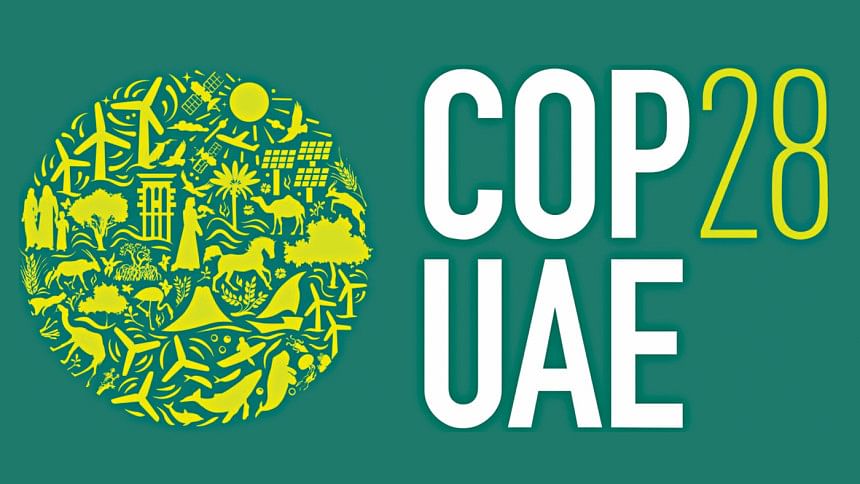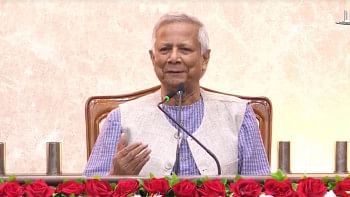UN chief, COP28 president clash over fossil fuels’ future

UN Secretary General Antonio Guterres urged world leaders at the COP28 climate summit to plan for a future without fossil fuels, saying there was no other way to curb global warming.
Speaking a day after COP28 president Sultan Ahmed al-Jaber proposed embracing the continued use of fossil fuels, Guterres said: "We cannot save a burning planet with a fire hose of fossil fuels."
"The 1.5-degree limit is only possible if we ultimately stop burning all fossil fuels. Not reduce. Not abate," he said, referring to nascent technologies to capture and store carbon emissions.
The competing visions summed up the most divisive issue facing world leaders at this year's UN climate summit in the oil-producing United Arab Emirates.
King Charles III of Britain pleaded with world leaders to make progress in the global climate agenda. "Scientists have been warning for so long, we are seeing alarming tipping points being reached," he said.
The comments from Charles, whose role as Britain's head of state is largely ceremonial, appeared to be at odds with his government.
British Prime Minister Rishi Sunak, who was expected at COP28 to announce 1.6 billion pounds ($2.02 billion) in climate finance, has rolled back several domestic measures that had been set by previous governments to help the country meet its 2050 net-zero targets.
Later yesterday, Indian Prime Minister Narendra Modi appeared to admonish wealthy countries for their role in releasing the most climate-warming emissions since the Industrial Revolution.
A former Marshall Islands president, whose country faces inundation from climate-driven sea level rise, resigned from the main COP28 advisory board yesterday in objection to the UAE's support of continued use of fossil fuels.
Hilda Heine said in her resignation letter that she was "deeply disappointed" that the UAE had reportedly used its COP28 role to broker oil and gas deals. The UAE has strongly denied the accusations.
Away from the main stage, delegations and technical committees were set to work yesterday on the mammoth task of assessing their progress in meeting global climate targets, specifically the Paris Agreement goal of limiting global warming to within 2 degrees Celsius (3.6 degrees Fahrenheit), above pre-industrial temperatures.
Scientists say that a global temperature rise beyond this threshold will unleash catastrophic and irreversible impacts worldwide.
The United Nations yesterday published its first draft for what could serve as a template for a final agreement from the COP28 summit, which ends December 12.
Also on the table for discussion is whether to phase out fossil fuel subsidies, which totaled some $7 trillion last year, and whether to include provisions for carbon capture and removal technology.
On Thursday, the UAE's Jaber urged countries to work together with oil companies to reach common ground. The summit also clinched an early victory by adopting a new fund to help poor nations cope with climate disasters.

 For all latest news, follow The Daily Star's Google News channel.
For all latest news, follow The Daily Star's Google News channel. 



Comments